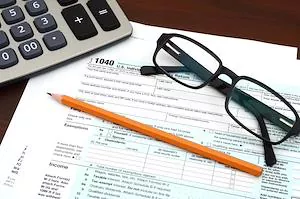Possible tax reform

If the amendment is implemented, the main measures would aim to progressively reduce the V.A.T. rate and to tax the financial income obtained by individuals with income tax.
1. V.A.T. - The general V.A.T. rate is 21%. At first, the rate would be reduced to 10.5% for basic products; then in a second stage, the general rate would be reduced.
The Economy Minister, Mr. Lavagna, had already implemented this measure by means of Decree No 2312/2002. This Decree reduced the V.A.T. rate to 19% for taxable events that occurred between November 18, 2002 and January 17, 2003.
2. Income tax - Individuals have several exemptions over the result of their financial investments. Among them, the following investments are exempt from this tax:
| Investment (a) | Tax | |
| Interest arising from a term deposit or a savings account in an Argentine bank | 0% | |
| Argentine Public Bonds (b) | -Interest -Result of a purchase transaction | 0% |
| Negotiable Obligations that fulfill the requirements provided by Section 36 of Law No 23,576 | -Interest -Result of a purchase transaction | 0% 0% |
| Public Bonds of Argentine Financial Trusts | -Interest (c) -Resultado compraventa | 0% 0% |
(a) These exemptions are applicable to foreign beneficiaries.
(b) As an additional issue, the holding of these assets is not subject to personal asset tax.
(c) A trust was set up for the securitization of assets and the securities are placed by a public offering.
Nevertheless, there is still no accuracy about the scope of the exemptions’ repeal.
3. Tax over credits and debits in bank accounts - At first, a percentage of this tax could be allocated as a payment on account of other national taxes. This possibility was repealed by Decree No 315/2002. The new government is analyzing the possibility of reestablishing this mechanism.
4. Administrative Tax Court (“Tribunal Fiscal de la Nación”) - This Court is in charge of deciding, among other matters, taxpayers’ appeals upon tax authority assessments or fines. It is part of the Executive. It is comprised of 7 courtrooms: 4 courtrooms with jurisdiction upon tax matters and 3 courtrooms which decide on customs matters. The new government is analyzing the possibility of increasing the number of courtrooms of this Court.
5. Courts deciding upon criminal tax matters and tax foreclosure proceedings - Presently, the crimes provided by Law No 24,769 are within the jurisdiction of the Courts of economic crimes of the City of Buenos Aires and Federal Courts in the Provinces.
Law No 25,292 created the National Court of Appeals in criminal tax matters, the Hearings’ Court in criminal tax matters, and three national courts in criminal tax matters. These courts are in charge of judging the crimes provided by Law No 24,769 in the City of Buenos Aires. This law was vetoed in various sections.
Law No 25,293 created six Federal Courts of tax foreclosures with jurisdiction in the City of Buenos Aires and with specific jurisdiction in tax foreclosure issues. Each court would have four head court clerks . In addition, head court clerks with specific competence in foreclosure issues would be appointed in Federal Court jurisdictions other than the City of Buenos Aires.
The implementation of these courts was subject to the existence of sufficient funds allocated in the budget to cover the expense, which never occurred.
By putting the courts in place the government aims to prevent tax evasion and increase tax collection.
This insight is a brief comment on legal news in Argentina; it does not purport to be an exhaustive analysis or to provide legal advice.